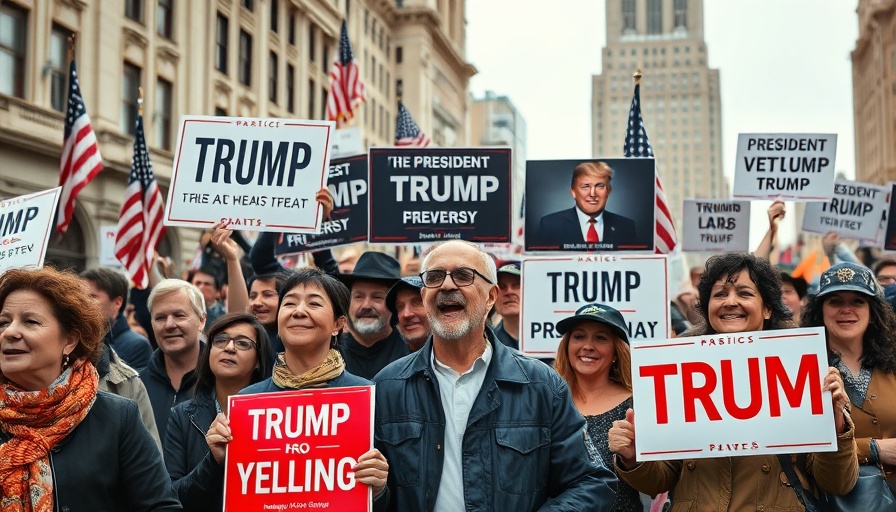
No Kings: A Day of Protest Against Presidential Authority
On a seemingly ordinary Saturday, thousands of cities across the United States became echo chambers for dissenting voices as protesters gathered for what was dubbed "No Kings Day." This massive effort aimed at expressing opposition to President Donald Trump's presidency coincided with his attendance at the Army's 250th anniversary military parade in Washington, D.C. The protests, however, took on a dual significance, representing both a critique of Trump’s leadership style and a broader condemnation of perceived authoritarianism.
Context: Why No Kings Now?
The demand for democratic representation and accountability has never been more urgent for many Americans. The adoption of the "No Kings" slogan evokes historical sentiments against monarchy and dictatorship, aligning with the desires of citizens seeking to reclaim their voice in governance. This movement comes at a time when many feel that legitimate grievances are being ignored or undermined by those in authority. As such, participants of these protests assert that democracy cannot thrive under a system that favors a singular command — hence, the call for a more distributed power structure.
Chaos and Order: The New Normal of Protest
As protests unfolded, the streets of Los Angeles bore witness to both peaceful demonstrations and moments of chaos. From a distance, one might have noted the sight of hundreds standing united with their banners and chants. But the heavy-handed response from law enforcement sparked chaos, as police on horseback met peaceful demonstrators with force. Sam Edgerton, a bartender involved in the peaceful protest, described the police action as an "over-reaction". Such militarized responses to social movements highlight the tense relationships between citizens protesting and the police forces intended to protect public safety.
Political Tragedy: A Shadow Over the Protests
The protests in Minnesota were particularly poignant, marked by tragedy and political violence that arguably dampened the spirit of dissent. Following the fatal shooting of state Rep. Melissa Hortman and her husband, demonstrations were halted due to security concerns. The suspected shooter had left behind materials linking him to the "No Kings" rhetoric. This incident serves as a chilling reminder of how political tensions can escalate beyond protest, impacting the very fabric of democracy and safety in civilian discourse.
A Diverse Collective: Celebrity Voices and Community Unity
Among the protesters in Philadelphia, notable figures like Martin Luther King III lent their voices to the cause, signaling a collective unity of purpose. His remarks — that the march was focused on "lifting up community" — emphasize that this movement transcends political lines; it is about inclusivity, community support, and ensuring that every voice has a place in the democratic process. Such representation signifies broader social movements seeking equity and justice beyond the surface level of political dissatisfaction.
Moving Forward: What Lies Ahead?
Looking ahead, the "No Kings Day" protests may be a turning point that shakes political apathy from its roots. Engaging citizens to stand up for their rights and emphasizing the importance of moral voices in politics could drive future movements. It’s a reminder to political leaders that consistent engagement with their constituents is crucial to maintaining faith in democratic processes. For many, this may lead to greater awareness about the effectiveness of civic engagement and electoral participation.
A Call to Action for Citizens
In the wake of these protests, it is essential for concerned citizens to not only advocate for policies they agree with but also engage in meaningful dialogue about different perspectives. Understanding the challenges faced by various groups in today’s political climate can create a more vibrant discourse around democracy. Calling on our leaders to listen while voicing our opinions can strengthen the very foundation of a representative government.
As the tension surrounding individuals as well as groups continues to rise, it’s crucial for American citizens to remember that they have the power to shape their governance through peaceful protests, conversations, and, ultimately, their votes.
 Add Row
Add Row  Add
Add 




 Add Row
Add Row  Add
Add 








Write A Comment